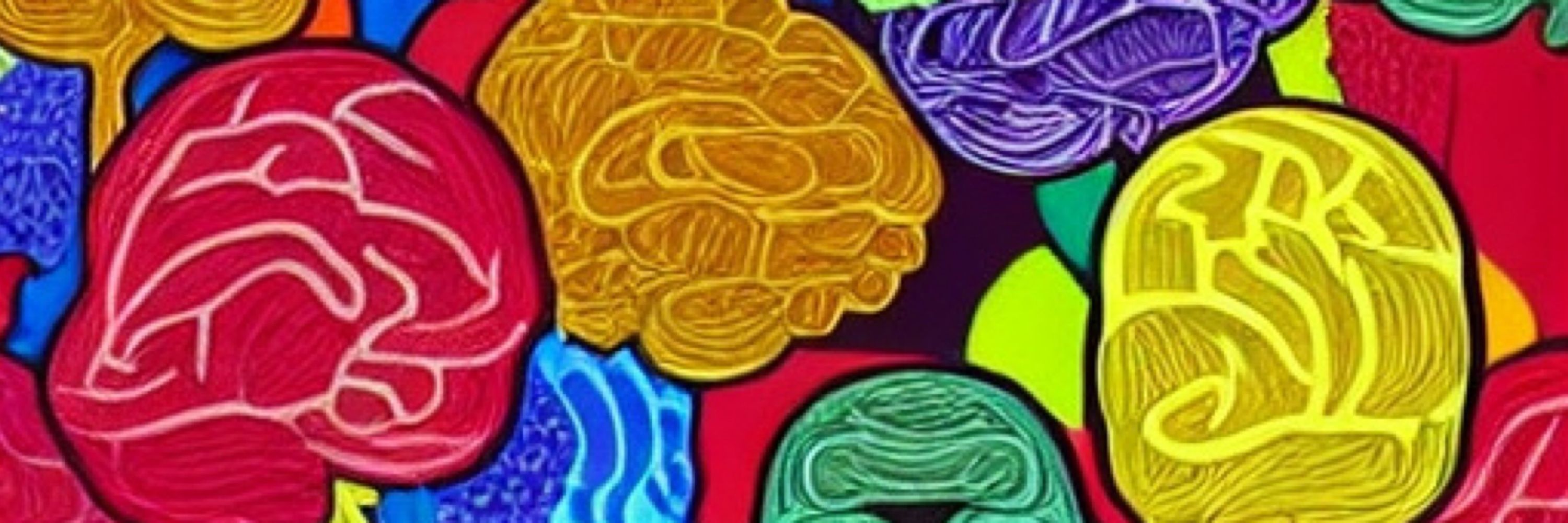
https://scholar.google.com/citations?user=kpiDvjYAAAAJ&hl=en
If you’re an adult with ABI who has faced mental health challenges, or a clinician/researcher, please consider completing our survey:
redcap.helix.monash.edu/surveys/?s=D...
If you’re an adult with ABI who has faced mental health challenges, or a clinician/researcher, please consider completing our survey:
redcap.helix.monash.edu/surveys/?s=D...
🔓
www.sciencedirect.com/science/arti...
@merrcresearch.bsky.social
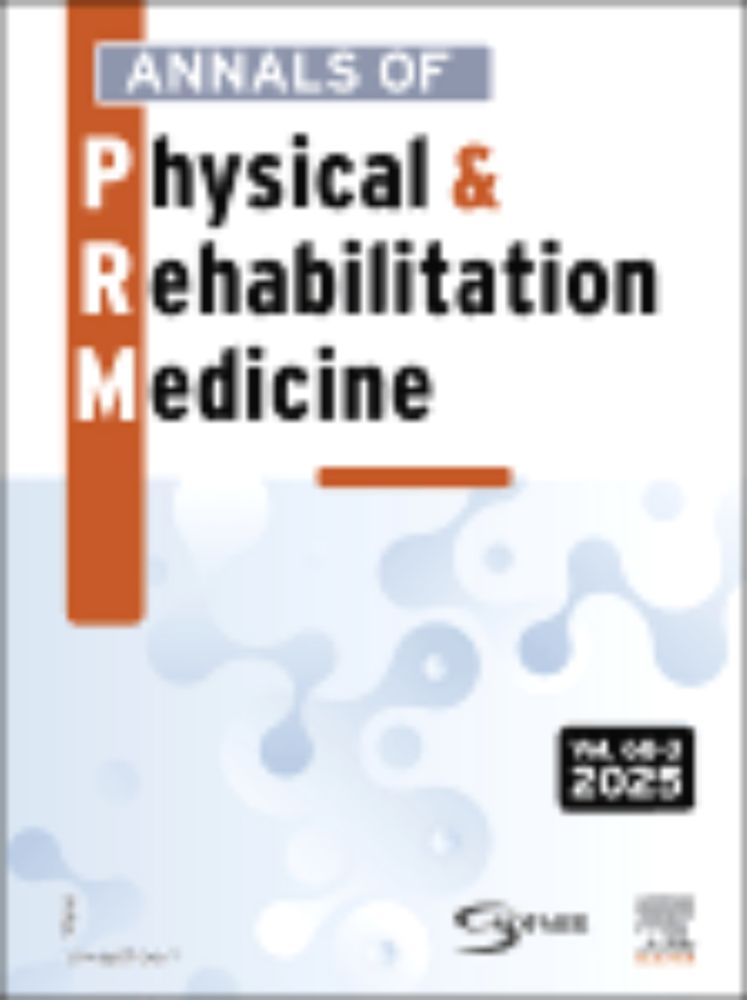
🔓
www.sciencedirect.com/science/arti...
@merrcresearch.bsky.social
We argue that @hitop-system.bsky.social has significant potential in clinical practice but to facilitate wider translation it must be presented as standing on its own two feet.
🔗https://psycnet.apa.org/doiLanding?doi=10.1037%2Fabn0001004
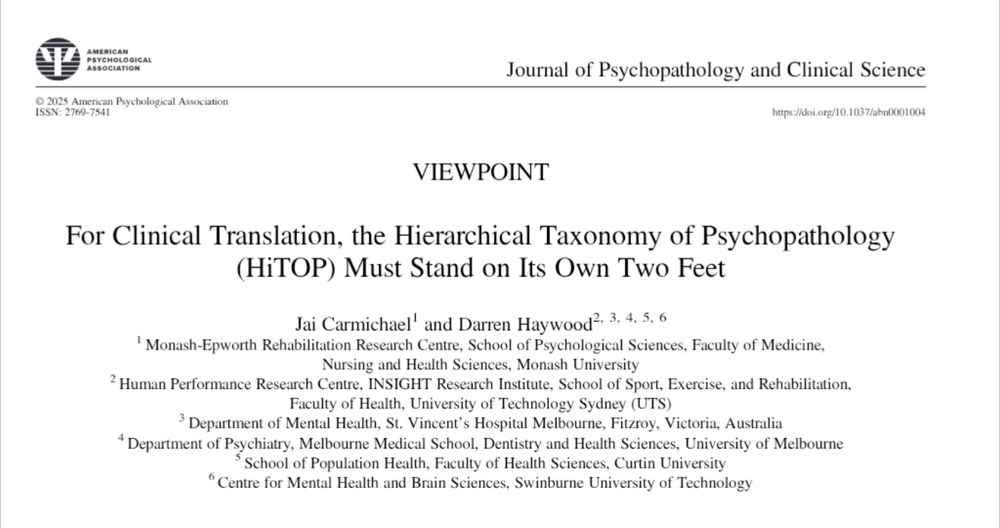
We argue that @hitop-system.bsky.social has significant potential in clinical practice but to facilitate wider translation it must be presented as standing on its own two feet.
🔗https://psycnet.apa.org/doiLanding?doi=10.1037%2Fabn0001004
Conversations so far have been incredibly valuable and deeply appreciated.
redcap.link/x2n3c8wr
Conversations so far have been incredibly valuable and deeply appreciated.
redcap.link/x2n3c8wr
Letters of intent are due in a few days—you don't need to have results finalised yet, just let us know you're interested!
think.taylorandfrancis.com/special_issu...
Letters of intent are due in a few days—you don't need to have results finalised yet, just let us know you're interested!
think.taylorandfrancis.com/special_issu...
psychology research to practice could improve mental health care but it is challenging. Researchers often frame the problem in terms of uptake failure by clinicians. But are they doing clinically useful research? In press, American psychologist
osf.io/preprints/ps...
psychology research to practice could improve mental health care but it is challenging. Researchers often frame the problem in terms of uptake failure by clinicians. But are they doing clinically useful research? In press, American psychologist
osf.io/preprints/ps...
Open access: www.tandfonline.com/doi/full/10....
@merrcresearch.bsky.social
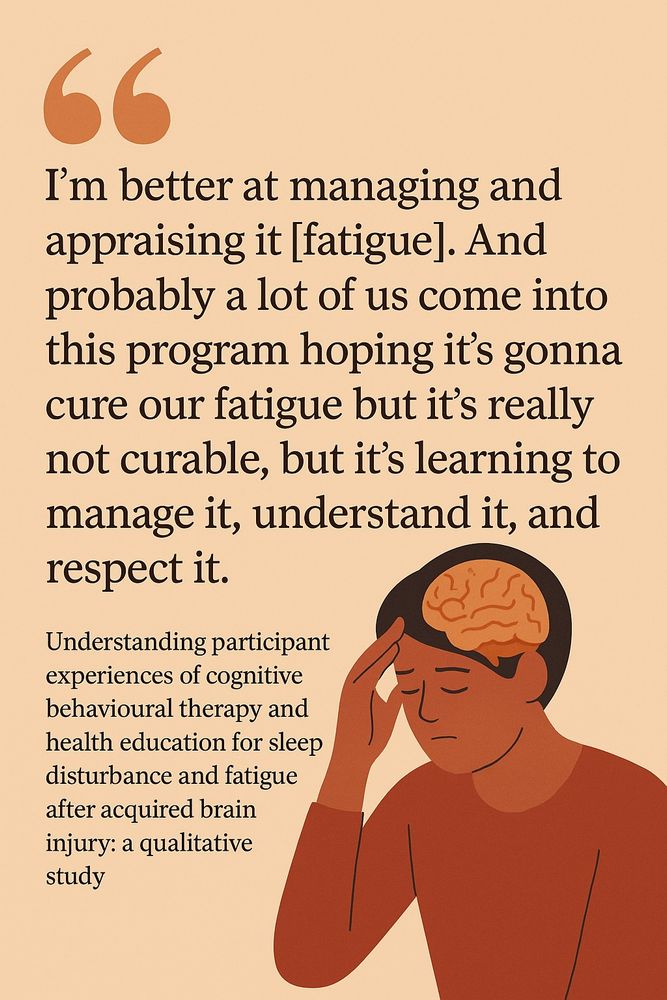
Open access: www.tandfonline.com/doi/full/10....
@merrcresearch.bsky.social
We argue that HiTOP's marketing to clinicians can be improved by focusing on its intrinsic strengths, rather than framing it as a corrective to the DSM/ICD.
osf.io/preprints/ps...
We argue that HiTOP's marketing to clinicians can be improved by focusing on its intrinsic strengths, rather than framing it as a corrective to the DSM/ICD.
osf.io/preprints/ps...
Deadline is May 1.
Details here: think.taylorandfrancis.com/special_issu...
Deadline is May 1.
Details here: think.taylorandfrancis.com/special_issu...
Thrilled to be co-editing a special issue in the JCEN with Silvana Mareva and Matt Calamia on transdiagnostic approaches in neuropsychology.
Learn more & submit your letter of intent by 1 May: 🔗 think.taylorandfrancis.com/special_issu...
@lisarapport.bsky.social
Thrilled to be co-editing a special issue in the JCEN with Silvana Mareva and Matt Calamia on transdiagnostic approaches in neuropsychology.
Learn more & submit your letter of intent by 1 May: 🔗 think.taylorandfrancis.com/special_issu...
@lisarapport.bsky.social
We explored suicidal ideation after moderate-severe traumatic brain injury. Findings suggest emotional dysregulation, coping style, resilience, & cognitive difficulties are linked to suicidality through symptoms of depression & anxiety.
🔗 Read more: osf.io/preprints/ps...
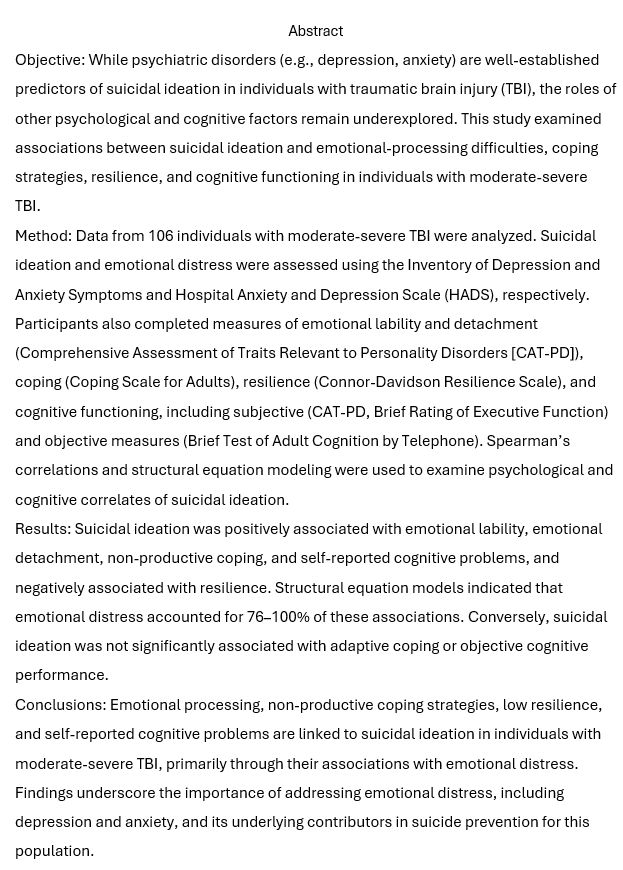
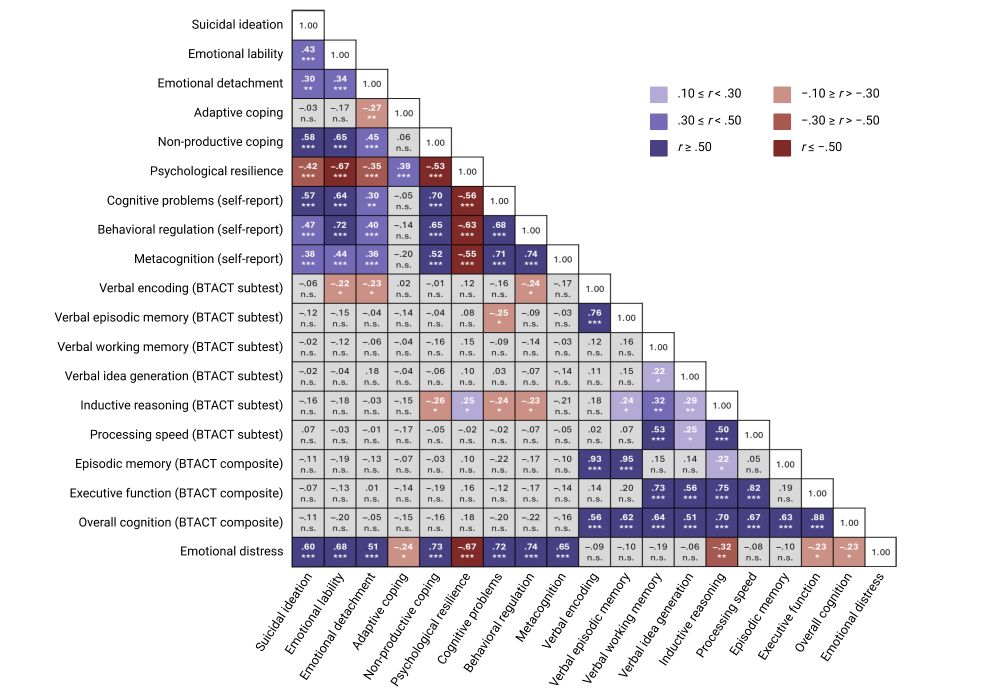
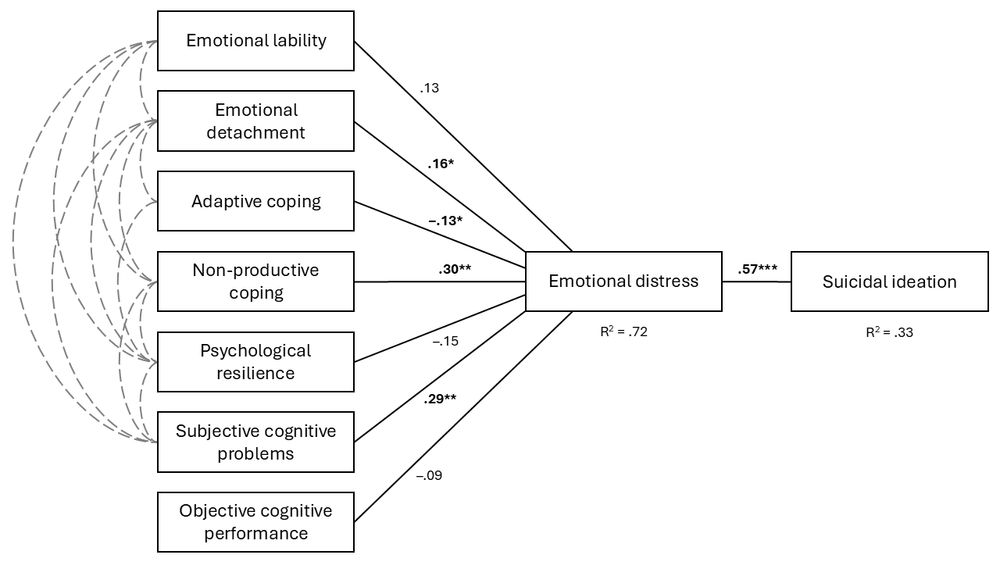
We explored suicidal ideation after moderate-severe traumatic brain injury. Findings suggest emotional dysregulation, coping style, resilience, & cognitive difficulties are linked to suicidality through symptoms of depression & anxiety.
🔗 Read more: osf.io/preprints/ps...
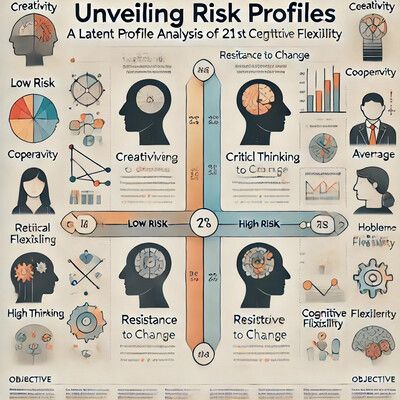
doi.org/10.1016/j.ar...
doi.org/10.1016/j.ar...
doi.org/10.1071/IB24...
doi.org/10.1071/IB24...
Happy to share that our review on volitional personality change research has now been published at Nature Communications.
Open-Access-Link: doi.org/10.1038/s442...
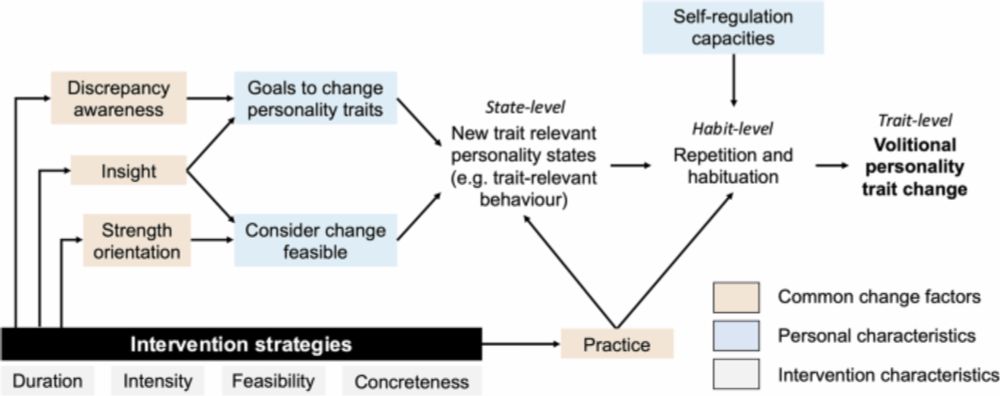
Happy to share that our review on volitional personality change research has now been published at Nature Communications.
Open-Access-Link: doi.org/10.1038/s442...
1. Explain diagnostic process
2. Assess thoroughly
3. Explore how the features affect everyday life
4. Link the diagnosis to evidence-based treatments & hope
From:
pubmed.ncbi.nlm.nih.gov/37997227
More in podcast
www.thecarlatreport.com/blogs/2-the-...

🔎 Stage 1 involves scoping interviews with:
- ABI survivors & close others (Australia only, for now)
- Clinicians/researchers (esp. keen to hear from those less experienced).
Please share with your networks!
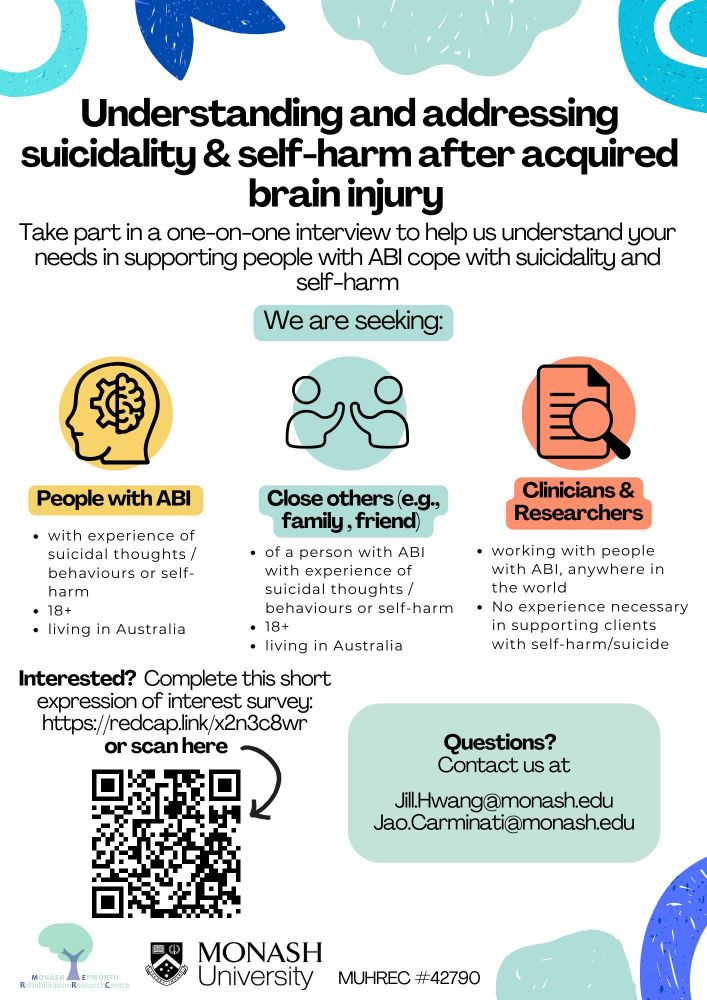
🔎 Stage 1 involves scoping interviews with:
- ABI survivors & close others (Australia only, for now)
- Clinicians/researchers (esp. keen to hear from those less experienced).
Please share with your networks!
We at Monash Epworth Rehabilitation Research Centre (MERRC) conduct research to maximise functional, psychological, and social outcomes following brain injury. More information at our website: www.monash.edu/medicine/psy...
#TBI #braininjury #neuropsych
We at Monash Epworth Rehabilitation Research Centre (MERRC) conduct research to maximise functional, psychological, and social outcomes following brain injury. More information at our website: www.monash.edu/medicine/psy...
#TBI #braininjury #neuropsych
A new briefing paper from the Division of Neuropsychology @donbps.bsky.social
Proud to be part of the team working on this chaired by @nielsdetert.bsky.social & dedicated to the late Jason Price who originally conceived of the idea 🙏❤️
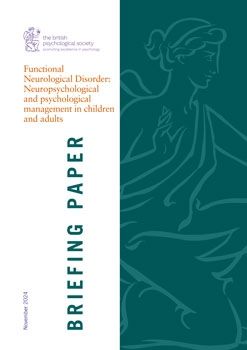
Please reply or message to be added to or removed from the list. We're excited to see a growing neurorehab community here!
go.bsky.app/4Vgz8Kz
Please reply or message to be added to or removed from the list. We're excited to see a growing neurorehab community here!
go.bsky.app/4Vgz8Kz
go.bsky.app/C36fgiD
go.bsky.app/3UH1pKc
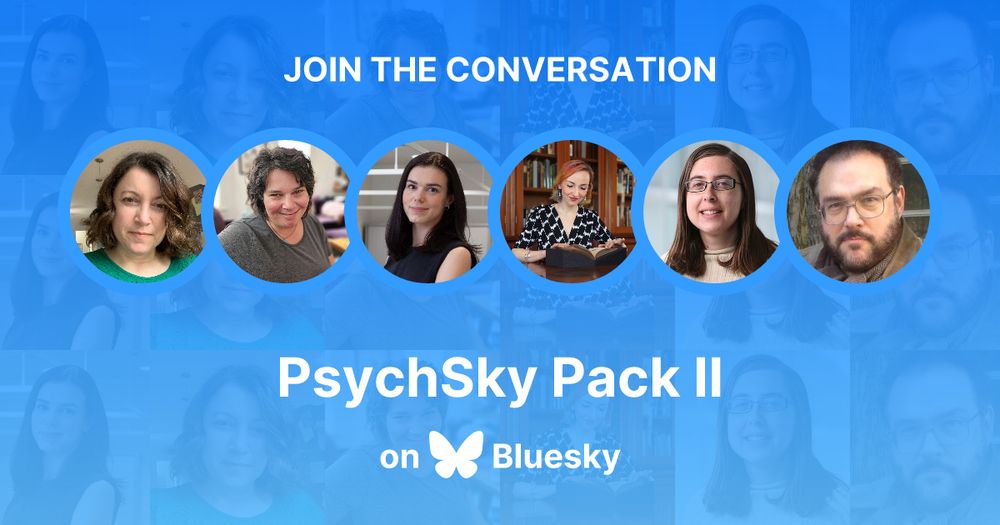
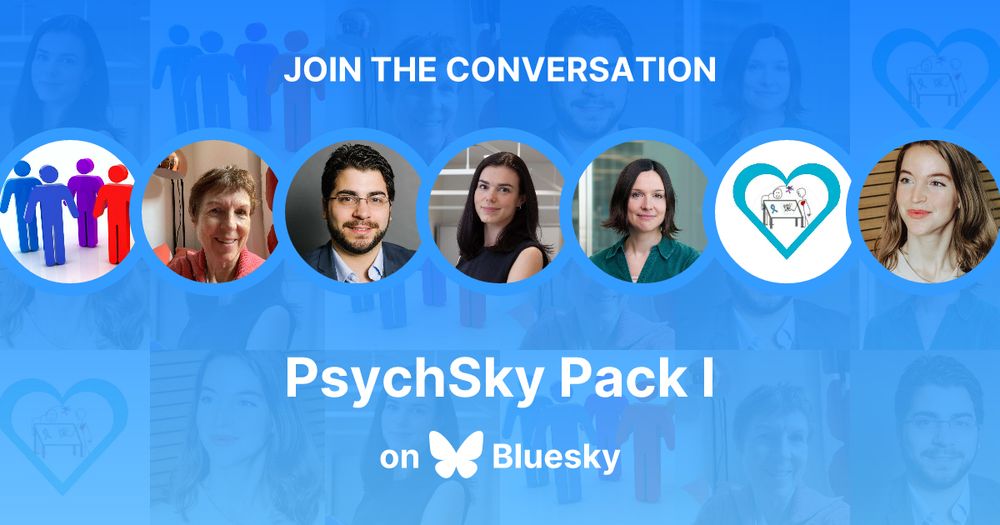
go.bsky.app/C36fgiD
go.bsky.app/3UH1pKc
www.sciencedirect.com/science/arti...
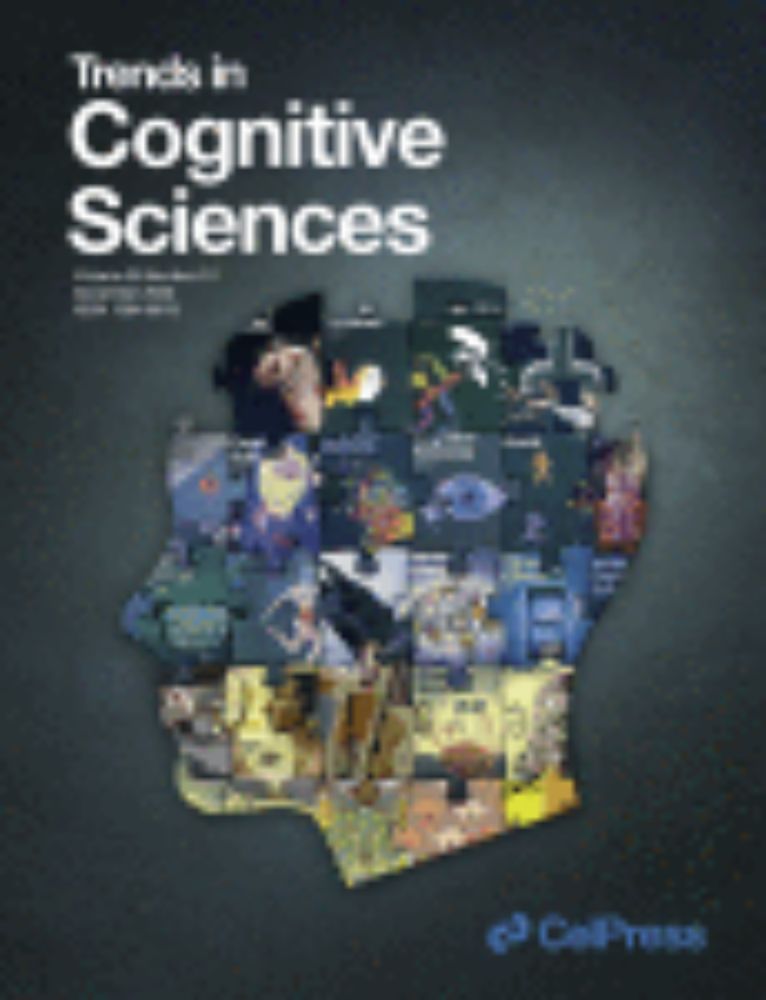
www.sciencedirect.com/science/arti...

